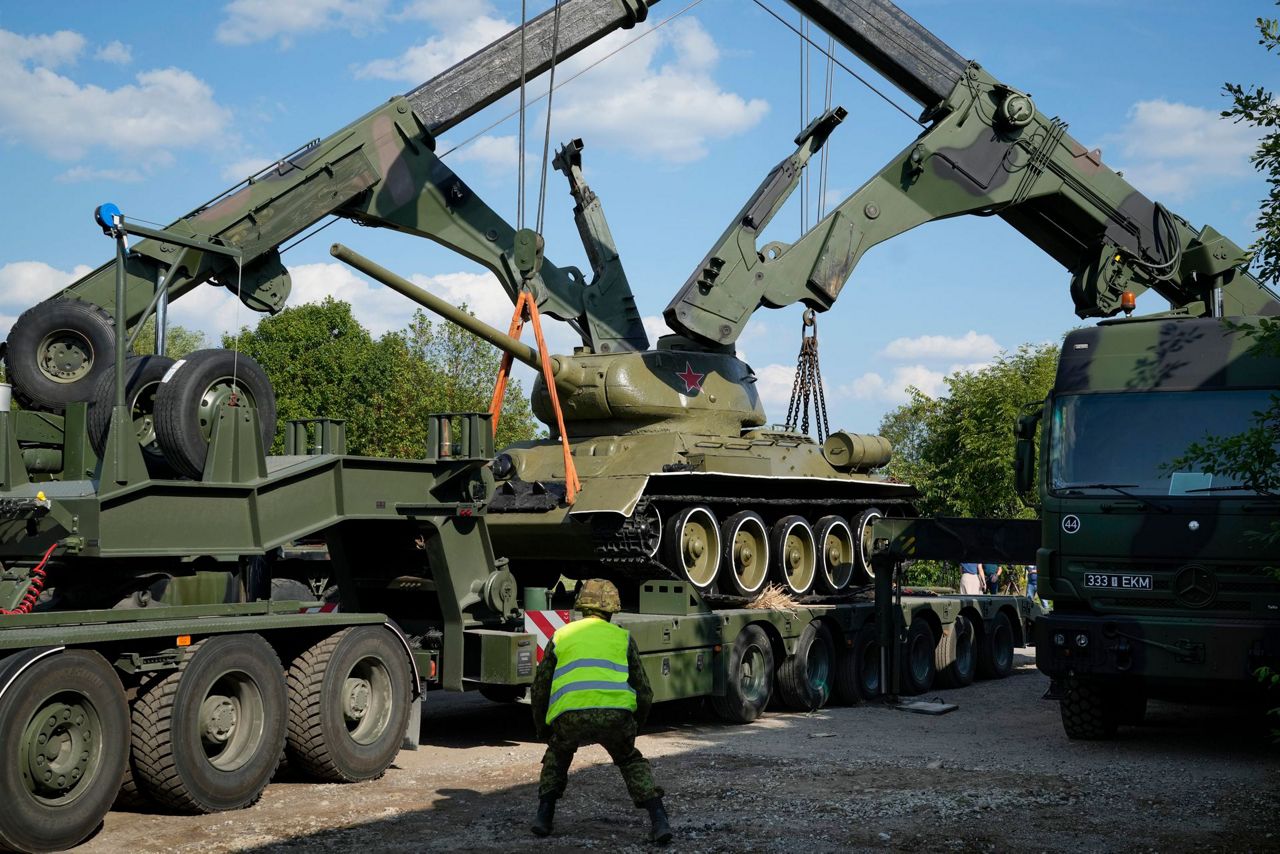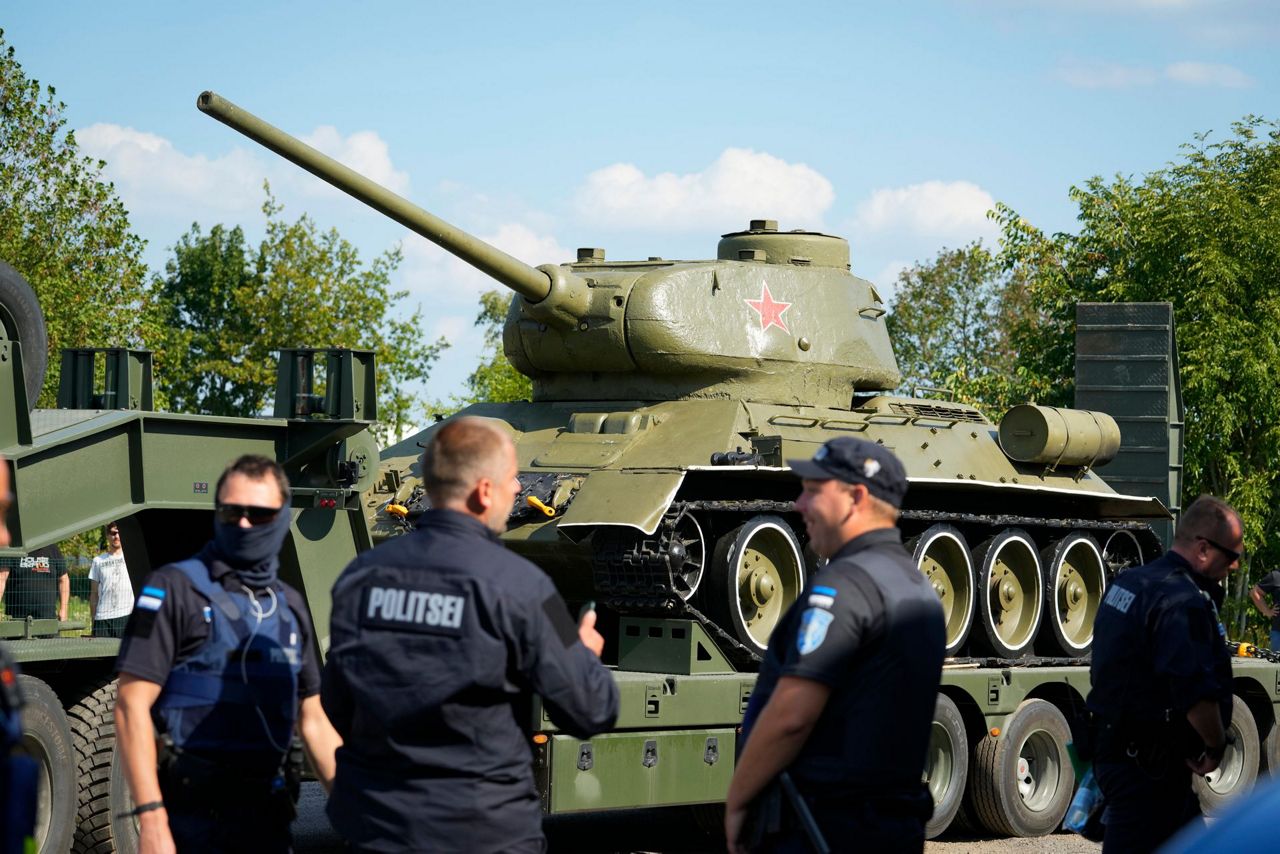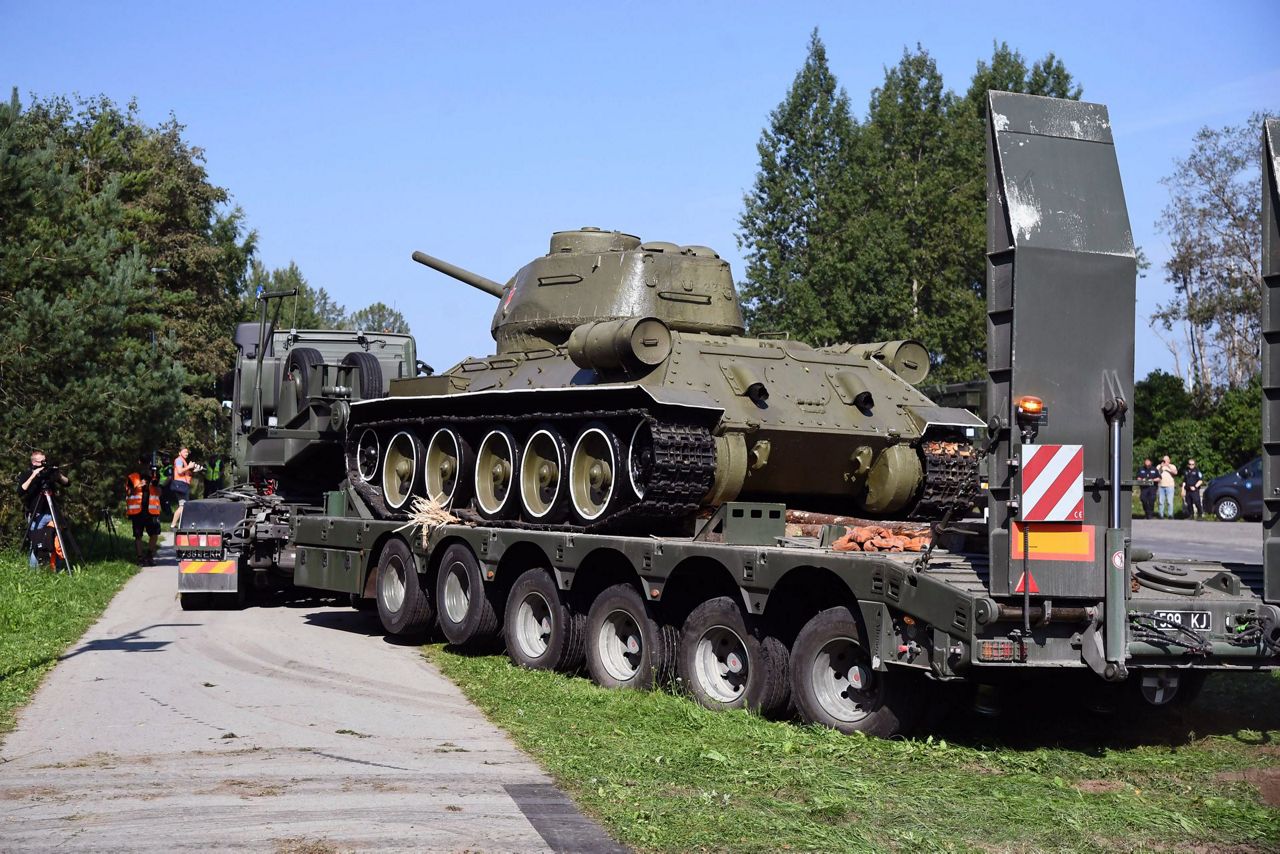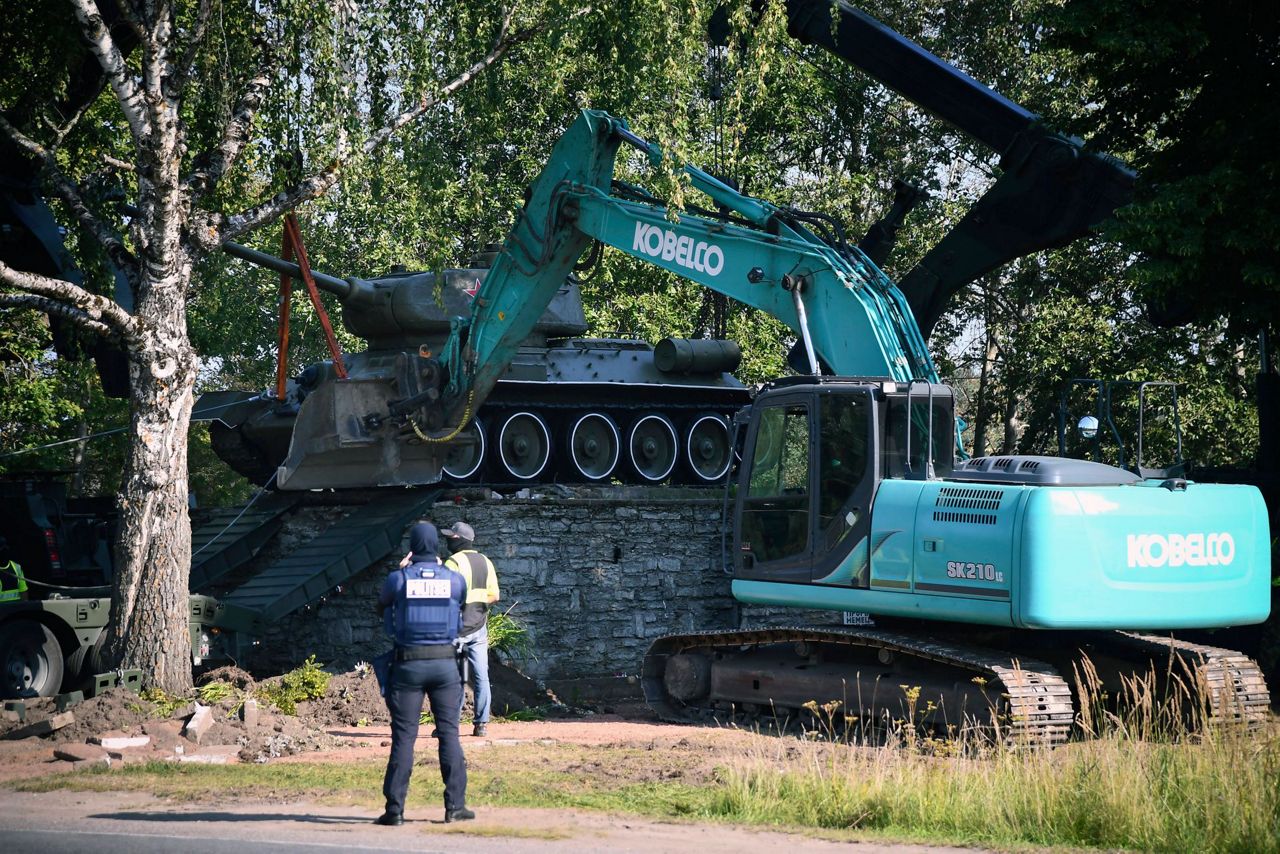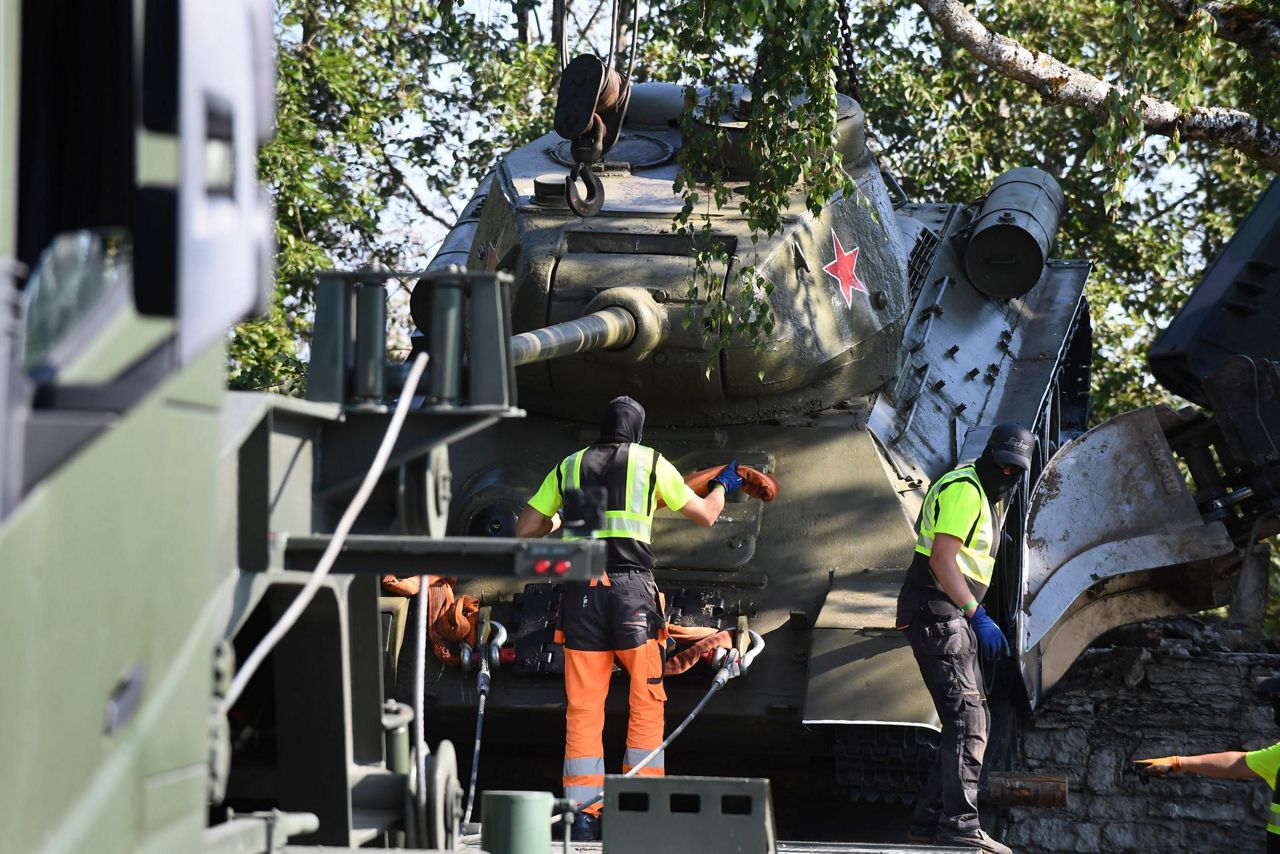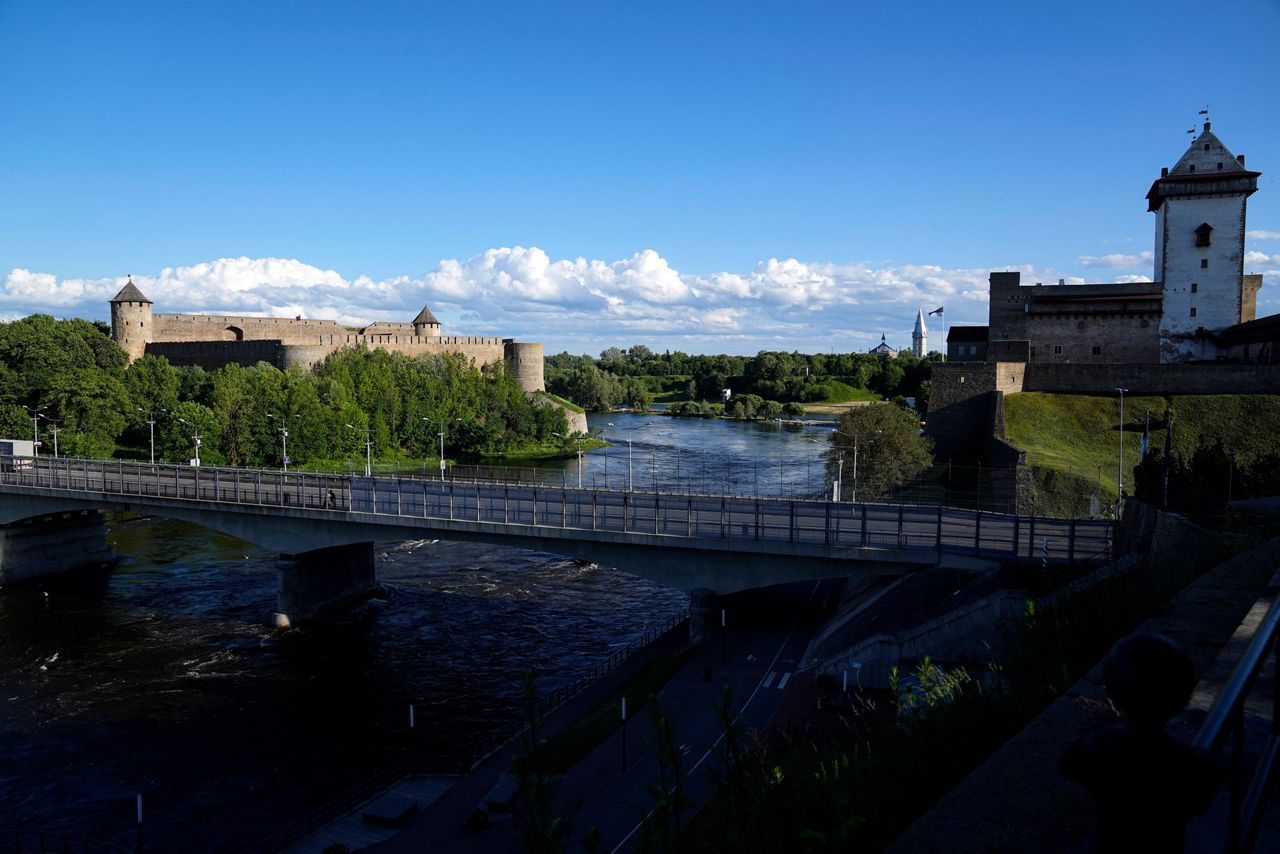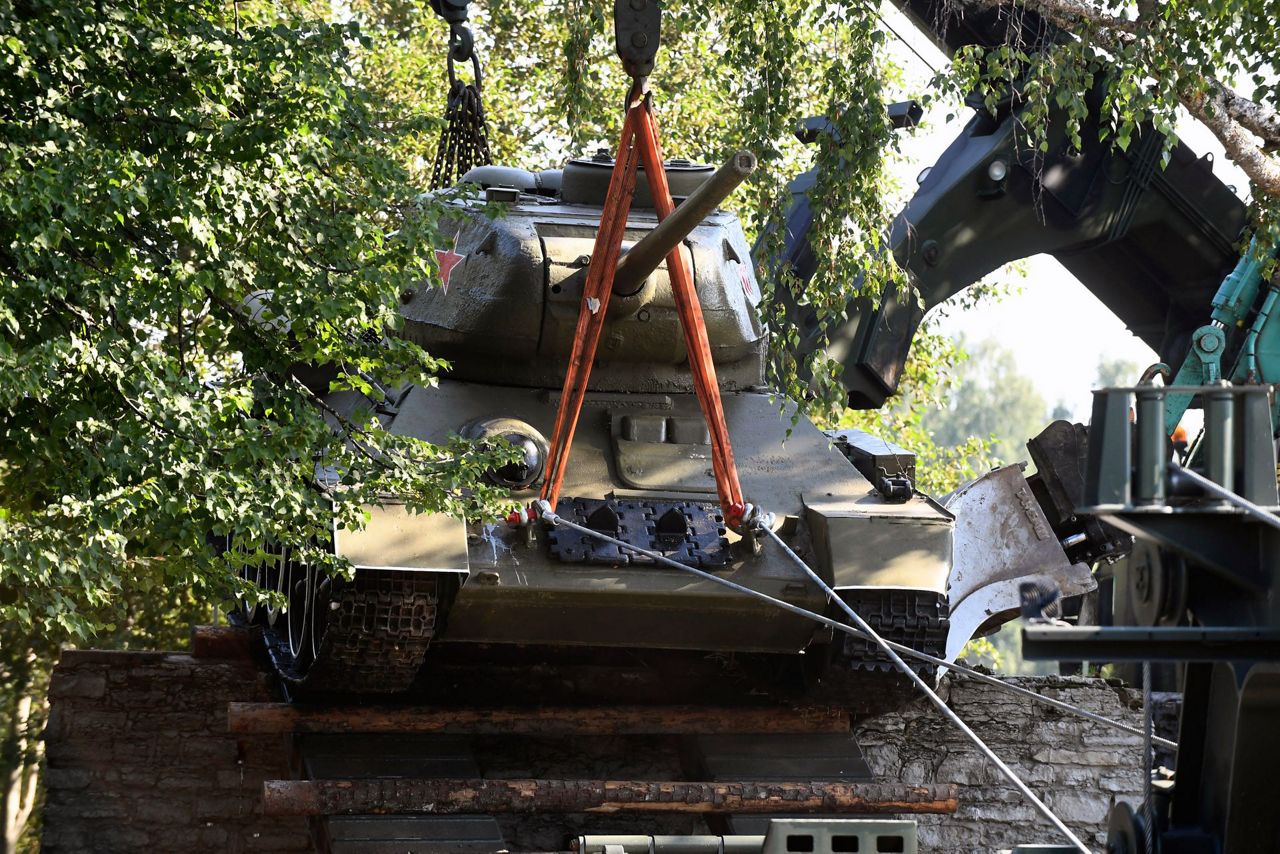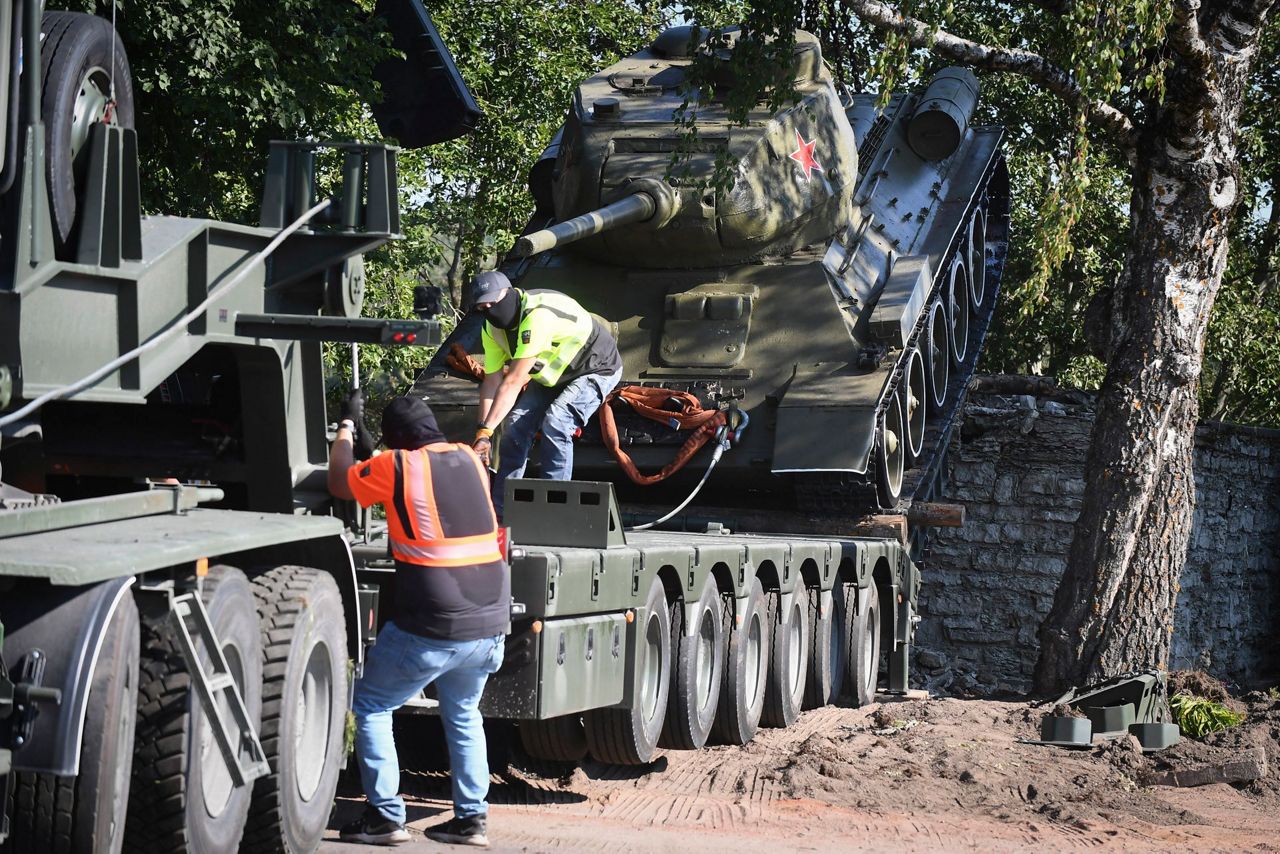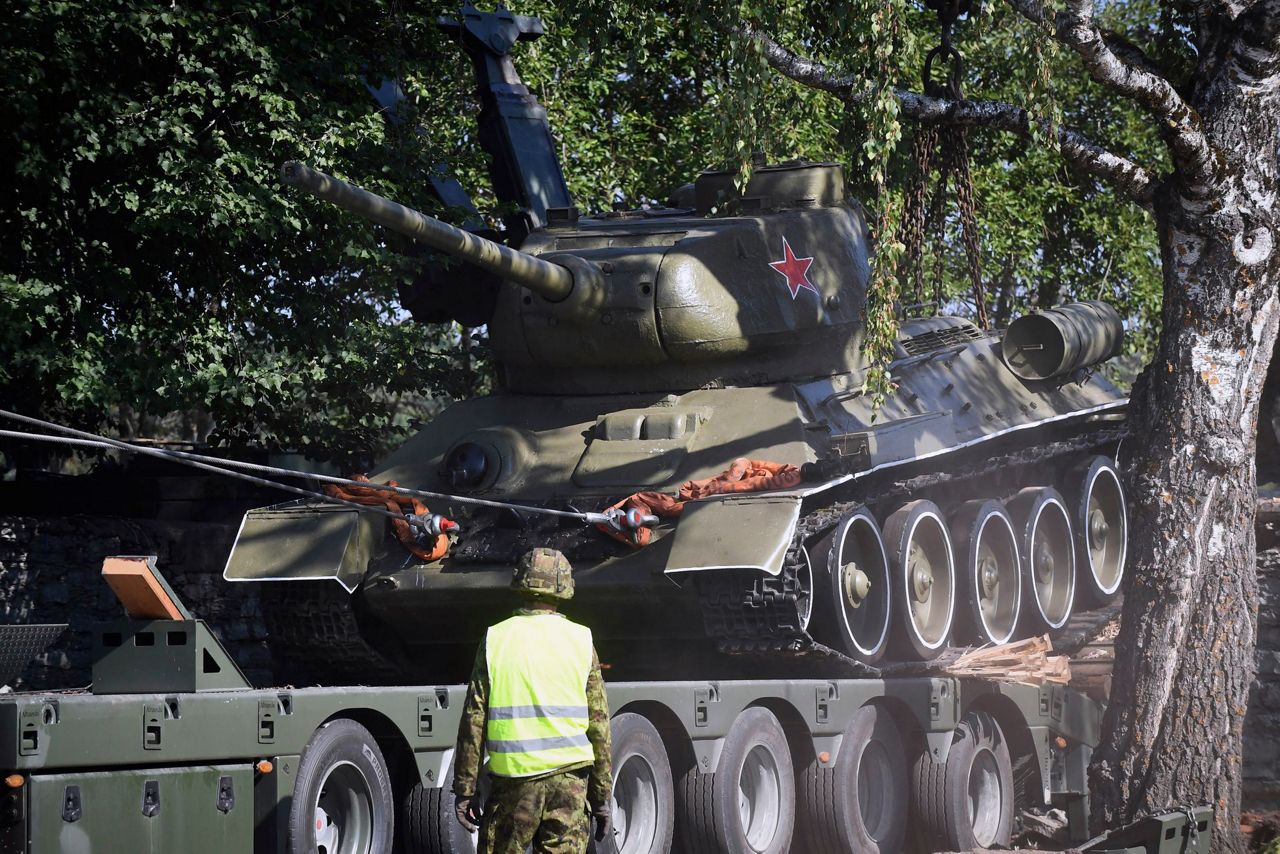COPENHAGEN, Denmark (AP) — Estonia's government started removing a Soviet World War II monument Tuesday from near a city on the Russian border as part of a wider effort, prompted by Russia’s invasion of Ukraine, to dismantle remaining Soviet-era symbols.
Crews removed a replica of a T-34 tank that sat atop the monument outside the city of Narva in Estonia's Russian-speaking east and placed it on a truck that took it to the Estonian War Museum in Viimsi, a town north of the capital, Tallinn.
The monument commemorates the Soviet soldiers who died fighting Nazi Germany during World War II. Estonian Prime Minister Kaja Kallas said a neutral grave marker would replace the tank replica and the memorial outside Narva would “remain a dignified site for commemorating the dead.”
Estonia, which shares a nearly 300-kilometer (180-mile) border with Russia, has taken a hard-line stance against Russia’s invasion of Ukraine.
The prime minister said that removing symbols like the tank was necessary to protect public order and to prevent Moscow from sowing discord in Estonia, a country with a significant ethnic Russian minority.
“No one wants to see our militant and hostile neighbor foment tensions in our home,” Kallas said. “We will not afford Russia the opportunity to use the past to disturb the peace in Estonia.”
Like its Baltic neighbors, Estonia has removed many monuments glorifying the Soviet Union or communist leaders since the country regained independence in 1991. In 2007, the relocation of a World War II monument of a Red Army soldier in Tallinn sparked days of rioting.
The government and many Estonians saw the Tallinn monument as a painful reminder of five decades of Soviet occupation, while some ethnic Russians viewed its move as an attempt to erase their history.
After the city council in Narva decided the replica tank should go, a crowd gathered around the monument to protest the plan. A total of seven Soviet-era monuments in Narva are slated for removal, the government said Tuesday.
The city, whose 57,500 inhabitants are chiefly Russian speakers, is about 210 kilometers (130 miles) east of Tallinn and separated from the Russian town of Ivangorod by the Narva river.
Russian officials have criticized Estonia's drive to remove remaining Soviet-era monuments.
“We find this outrageous. A war with a common history, getting rid of monuments for those who saved Europe from fascism, of course, is outrageous. This does not make any nation look good, including Estonia," Kremlin spokesman Dmitry Peskov said earlier this month.
Earlier this month, Estonia decided to bar people from neighboring Russia with tourist visas from entering the northernmost Baltic country as a consequence of the war in Ukraine. The European Union, of which Estonia is a member, already has banned air travel from Russia after Moscow invaded Ukraine on Feb. 24. But Russians can still travel by land to Estonia and apparently take flights to other European destinations.
___
Follow the AP’s coverage of the war at https://apnews.com/hub/russia-ukraine
Copyright 2022 The Associated Press. All rights reserved. This material may not be published, broadcast, rewritten or redistributed without permission.



